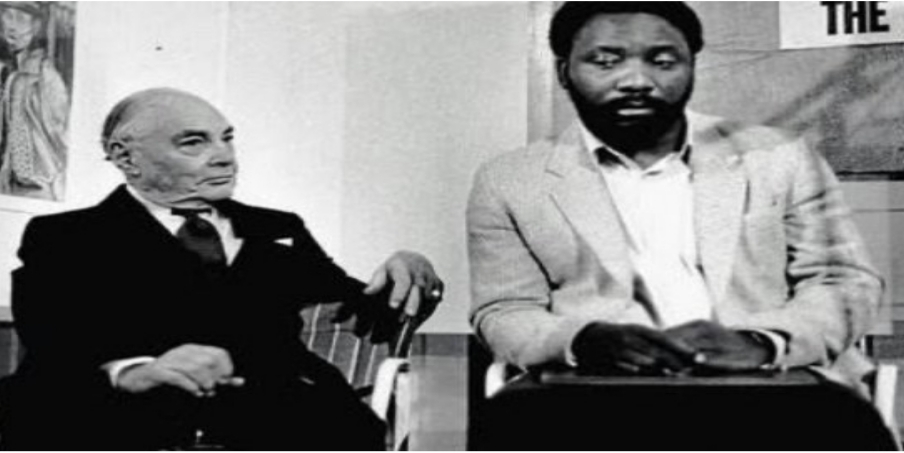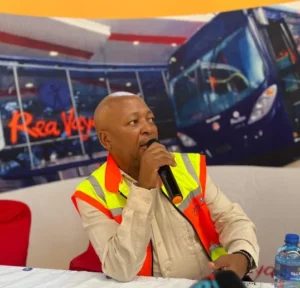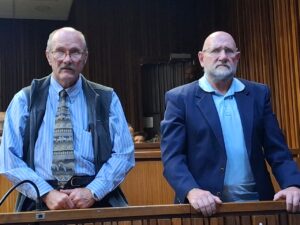By: Hadebe Hadebe
Lindiwe Sisulu’s outbursts about the failures of the constitution have been misunderstood and taken out of relevant contexts. Many within and outside the ANC have reacted to her letter, but the responses have showed how much the South African public is out of touch with its condition.
The elite classes always act with confidence and self-surety, but their complacency is the source of all the problems that beset South Africa to date. Whether one wishes to point to corruption and ’state capture’ or economic marginalisation and inequality, the elite knows a thing or two why these problems define the democratic state.
The ongoing saga represents the crisis within the amazemtiti dynasty, the black side of the South African ruling elite. Framing the argument using the book ‘Twilight of the Elites: America After Meritocracy’ by American scholar Christopher Hayes, this article argues that the many competing forces working in South Africa cause the financial crisis, elite crisis, media crisis, and, many other crises in society.
Hayes would characterise what is happening in South Africa as “a cascading elite failure” – the country stumbles from one crisis to another and no one seems to have a cogent explanation for poverty, unemployment and spontaneous violence.
In short, South Africa is stuck in trap door of the elites. The society is becoming more unequal and less mobile but the selected few who ascend its heights create means of preserving and defending their privilege. The latter group represents the elite class which is more concerned about its position in relation to the rest of society than anything else. This selfishness can help to explain Sisulu’s outrage and the responses to her letter.
Hayes also talks about “fractal inequality”. He defines this concept as “the insecurity which haunts elites (at all levels) of not belonging to the even more elite circles from which they are excluded”. Sisulu is frustrated that his black elite are not able to break into the top the 0.001 percent that hog wealth and the country’s fortunes well into the future. But she is a “part elite” that exists in the periphery, which is criticised for the failures of society together with middle classes.
Pity for the middle classes, especially black ones, have no idea what is probably happening in their surroundings and somehow find themselves in debates that do not need them. People like Raymond Zondo, Mondli Gungubele, Julius Malema, Lindiwe Zulu and Ronald Lamola unfortunately are among those who have little understanding of how the [white-led] South African society is structured. All of them are not amazemtiti but they are mere annexes to the top establishment through the ANC and their jobs.
The middle class is made up of a group of hyper-educated, ambitious overachievers who enjoy tremendous monetary rewards as well as unparalleled political access and prestige, but they have also mimicked top elites by insulating themselves from sanction, competition and accountability. That is the reason they have found it necessary to respond to Sisulu.
Political scientist and cleric Clyde Ramalaine once argued, “Some of the advantaged blacks, from the comfort of their new economic positions as facilitated by the beneficiaries of colonialism and apartheid, deny the existence of an apartheid white identity manifested in the monopolised control of the economy.”
Even the ones who side with Sisulu are not counted in the elite squabbles, they just need to understand their position as hangers-on. Absence of national consciousness is a debilitating problem for elites and their sidekicks, the middle classes.
Lindiwe Sisulu is part of the oligarchic Sisulu family that has been part of the amazemtiti dynasty for many years to date. Her father Walter Sisulu is among the people who delivered the struggle of Africans to the white neoliberal classes in 1955, and things for the African family have not been the same ever since.
Sisulu is therefore not speaking for the oppressed, poor and marginalised masses nor she is trying to save a political career. To be fair to her, she does not need any of these two things since her and her family’s interests are safeguarded through the very same constitution she is purportedly shredding to pieces.
The South African black elite class traces its origins to the 1800s and formally organised as a political group in 1912 through the ANC. This was after the powerful white elite, with the assistance of London, excluded them from the negotiations that led to the founding of the modern South African state in 1910.
The black elite saw their fortunes decline starting with the promulgation of the 1913 Land Act and the victory by the Afrikaner nationalists in 1948. However, it was given a lifeline in 1955 when they agreed to mortgage the African struggle for their own comfort and social standing.
The Freedom Charter was conceptualised with the white liberal class to manage the demands of the black majority, which had suffered dispossessions, racial discrimination and oppression since the European settler decided to make this part of Africa his permanent home.
With the rise of the ‘verkrampte’ Afrikaner class and eventually their declaration of independence from Britain in 1961 divide the black elite class. Some opted to fight the politically strong Afrikaner nationalists and were sent to prison and exile. The others collaborated as homeland leaders in support of separate development policies of the apartheid state.
The Afrikaner faction of the white elite enhanced its position through “volkskapitalisme”. Dan O’Meara explains that the racist Nationalist Party government “leveraged state power and state assets such as stateowned banks to buoy up Afrikaner businesses and turn them into the corporate behemoths of today”. The black elite have been justifiably hamstrung
Therefore, any attempt to engage the contents of what Sisulu said, did not say or what she ought to have said or not is a wasteful exercise. It serves no purpose to argue for or against the merits of her argument because she may not be interested in that after all. The rejoinders either by Pallo Jordan or Lamola, and even Zondo, simply miss the target by the widest margin.
At least Jordan is in the same position of privilege like Sisulu: he is correctly entangled in the crisis that faces the black nobility. The black elite is confronted with genuine prospects of forever playing second fiddle to its white counterparts.
As Moeletsi Mbeki once pointed out, South Africa has never had an indigenous capitalist class unlike the Afrikaners and the English. The BEE scheme was an afterthought to appease the black elite without transferring assets and wealth. All BEE beneficiaries do not really play a significant role in the production of goods and wealth generation for the country and its citizens.
The implications of the absence of a truly black capitalist class means that the amazemtiti are only good to play the role of traditional authority during colonialism – to marshal the black majority for a fee. Black elites are only good to serve in politics and this makes them a buffer between the hungry, poor black masses and the wealthy white elites who control the “base” (capital and the means of production).
The black elite had to front for apartheid capital during its spread across the Africa after 1994. Without the black elites actively campaigning for outward investments to the continent, white-owned companies would have carried a heavy load (apartheid guilt).
Using the Marxian analogy of the base-superstructure, the white elite retains absolute control of the factors of production as they were during both colonialism and apartheid. Their half-hearted BEE programme was a lousy stunt that has dismally failed.
“Once empowered, always empowered”: that is what they tell the parasitic black elite when it demands more share in the economy. The black elite probably has serious afterthoughts about the political concessions they have been making pre- and after 1994.
What is evident is that the black elite has been tasked with a laborious activity of operating in the superstructure to defend the base, which basically means white economic interests. And, the constitution is part of the infrastructure put in place to keep “the two nations in one” phenomenon intact. To retain their eminent position elites like Sisulu oscillate between the extremes of the white-led South African state. This is only on condition that they keep the displeased majorities quiet.
With the system fledgling and showing sings that it cannot hold any longer, the elites are worried. They blame each other for the mistakes that have been made since the dawn of democracy.
Robert Hersov has been vociferous in the past few months about how the black elite are dropping the ball. He is suddenly the fiercest critic of the black elite and is even temped to wrestle political power from the black elite in the same way Donald Trump did in the US in 2016. Helen Zille too has made her views known.
Sisulu’s reaction was therefore expected. She equally directs her blame to the white elites for exploiting black elites (read: the ANC top honchos) without extending the economic benefit. Her sentiments aren’t entirely new though, Jacob Zuma acted out of character while he was overseeing the political experimentation project that started with Mandela.
Zuma not only clashed with the with the ruling establishment, but he also compromised the fellow members of the black elite. Like it is happening to Sisulu, he faced a backlash from both amazemtiti and the upper echelons of the white elite. There are reports that billionaire Johann Rupert even threatened to collapse the economy if he continued to misbehave.
The tentacles of the white establishment spread as far as London where Robin Renwick and Peter Hain are performing sterling work to ensure that the South African white autocracy in isn’t forgotten by the British Colonial Office in Westminster. The black elite understand where power lies and who has the final say about its future. Anyone who fails to observe the protocols of hierarchy gets punished, jailed or exiled.
In any way, “the political elite’s preferences for transnational solidarity are driven by similar considerations than those of the citizenry”, argue researchers Ann-Kathrin Reinl and Heiko Giebler. Without external networks, the elites would struggle to make money and to move it around.
The crisis confronting the black elite class manifests both inside and outside the ANC as factional wars and or general instability in all spheres of South African life. After the negotiated settlement which gave birth to the neoliberal democracy and its constitution, the elite classes appear uncertain on how to proceed. The economy is underperforming, and many socioeconomic problems are causing instability.
The elite does not speak openly to communities due to the secrecy code. For example, the Codesa negotiations and agreement remain in the vault, and the citizens continue to guess what might have been agreed. Nonetheless, what came out of the negotiations were democracy and constitution under a neoliberal framework, and the neoliberal model that was sold as a solution to the black elites to in turn sell it to the black masses is quickly becoming fragile and has not delivered on its promise.
Sisulu has been part of this journey as a member of her noble family and a senior member of the ANC. She is not just an ordinary member, but she is part of the aristocracy that has always controlled the ANC. That is what makes her different from the likes of Gungubele and Lamola.
As English author George Orwell’s novel Animal Farm once postulate, “All animals are equal, but some animals are more equal than others.” ANC members are not equal, and Sisulu belongs to the ANC nobility that had the privilege of negotiating the political, economic and legal systems that have deepened inequality and other social problems in the indigenous communities.
Historian Michael Parenti explains that the history of capitalism has been about great prosperity as it is about great poverty. The notion of poverty is generally viewed as a function of market imperfections rather than as a deliberate act to exclude others. This is a worldwide phenomenon created by free-market capitalism that elites favoured instead of delivering justice to those were affected by conquest.
It is unclear how the black elite expects to obtain different results from the economic system it helped create and further supported it with a law. Jordan thinks judges a humble species that must be left alone in the crisis of poverty and inequality in South Africa. The maze of protecting the “base” goes beyond politics. The uncanny manner journalists behave is proof that the scheme is bigger and everywhere.
There are no saints and sinners in the war of the elites. Whatever argument they put forward should not be taken to the head, because it has nothing to do with subalterns and lower classes. The cascading failure of elites cause the system to fail. In the South African case, the ANC’s poor showing in elections is not necessarily about its underperformance, but the masses are boycotting the system itself.
The elites are concerned about their self-image rather than their failures. The roof will collapse while they are debating among themselves. Ordinary people have been excluded and continue to be excluded by those who think they have solutions to their problems.
Siya yi banga le economy!







